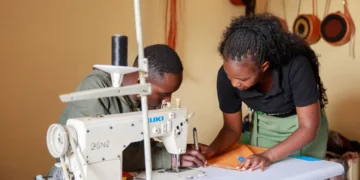
The feminist fight against sexual violence has always been an uphill battle, confronting not only perpetrators but also the deeply entrenched systems that protect them. Rape culture, defined by the normalization and trivialization of sexual assault, thrives on societal silences and judicial indifference. For victims, speaking out often means facing further trauma, as they are scrutinized and doubted in ways their abusers rarely are. Yet, within this bleak reality, some voices rise above the noise, demanding justice not just for themselves but for all who have suffered in silence.
Gisèle Pelicot’s story is one such voice—a powerful example of the transformative power of courage in the face of systemic oppression and the enduring fight for feminist ideals. In a small courtroom in Avignon, France, this unassuming 72-year-old grandmother made history. Her ex-husband, Dominique Pelicot, was sentenced to 20 years in prison for drugging and raping her over nearly a decade, orchestrating her assault by inviting 50 other men to participate. Yet, it is Gisèle’s extraordinary bravery in sharing her harrowing ordeal publicly that has elevated her to the status of a feminist icon, inspiring a nation and challenging entrenched societal norms.
Gisèle’s story is not merely about survival—it is about defiance. Breaking from societal norms that pressure victims into silence, she waived her anonymity and insisted on a public trial, determined to “change the conversation about rape.” Her decision was revolutionary in a country still grappling with the cultural residue of patriarchy. By making her trauma visible, Gisèle shifted the burden of shame from victims to perpetrators, demanding accountability not just from her attackers but from society at large.
The details of the case are almost unbearable to recount. Dominique Pelicot systematically crushed sleeping pills into Gisèle’s food, rendering her unconscious before violating her and inviting others to do the same. The evidence, captured in thousands of photographs and videos, provided a chilling proof to the systematic nature of his crimes. For years, Gisèle lived with inexplicable health symptoms—blackouts, weight loss, and hair thinning—unaware that her suffering was the direct result of her husband’s betrayal.
When the truth came to light, Gisèle was faced with a choice: retreat into anonymity or confront the atrocities head-on. She chose the latter, turning her pain into a call for justice. Her testimony and poise in court have gained a lot of support and reframed the narrative around rape survivors, making her a symbol of resilience and defiance.
Gisèle’s case has reignited debates about consent and sexual violence in France. Feminist activists argue that the French criminal code should explicitly define rape as any sexual act without consent, removing ambiguities that perpetrators often exploit. The trial also laid bare the toxic masculinity ingrained in society, exemplified by the 50 other defendants—men from all walks of life who participated in the abuse. Their varied profiles, from truck drivers to IT specialists, underscore the pervasive nature of misogyny and the complicity of ordinary men in perpetuating violence.
This trial also highlighted the disparity in sentencing for sexual violence. While Dominique received the maximum sentence, many of the other defendants walked away with lenient terms, sparking outrage among activists. Lorraine Questiaux, a Paris-based lawyer, aptly captured the sentiment: “These sentences are relatively lenient given the gravity of the acts. They reflect a judicial system still hesitant to fully reckon with the severity of rape.”
Gisèle’s unwavering resolve to make her trial public was not just about seeking justice for herself—it was about ensuring that her story served as a catalyst for societal change. “I wanted shame to change sides,” she declared outside the courthouse, her voice steady despite the gravity of her words. By choosing to face her abusers in open court, she gave a voice to countless women whose stories remain buried under layers of stigma and fear.
“I wanted shame to change sides!”
– Gisèle Pelicot.
Her courage has resonated far beyond France, inspiring women worldwide to demand accountability and systemic change. The sight of her walking out of the courthouse, head held high, has become emblematic of the feminist struggle against gender-based violence. From graffiti in Paris proclaiming “Merci Gisèle” to international media coverage, her story has become a rallying cry for those fighting against the normalization of rape.
This case forces us to confront uncomfortable truths about societal complicity in enabling sexual violence. The normalization of misogyny, the reluctance to hold perpetrators accountable, and the tendency to silence survivors are not unique to France. Gisèle’s story underscores the urgent need for comprehensive education on consent, stricter laws against sexual violence, and a cultural shift that places accountability squarely on the shoulders of perpetrators.
As feminist collectives continue to amplify Gisèle’s message, the hope is that her bravery will lead to tangible changes in policy and societal attitudes. Her story is a stark reminder that the fight against rape culture requires collective action and an unwavering commitment to dismantling systems of oppression.
Gisèle Pelicot has emerged as a hero whose strength and determination have reshaped the conversation around rape and consent. Her name, once tied to an unthinkable betrayal, now symbolizes resistance, justice, and hope. In choosing to share her story, she has given countless survivors the courage to speak out and demand a world where no one endures what she has faced.
Gisèle’s journey is far from over, but her impact is undeniable. She has shown us that even in the face of unimaginable trauma, one woman’s courage can spark a movement, shifting the tides of shame and inspiring a global reckoning. For that, she will forever be remembered as the hero we needed.
Words by Katarina Doric.



















